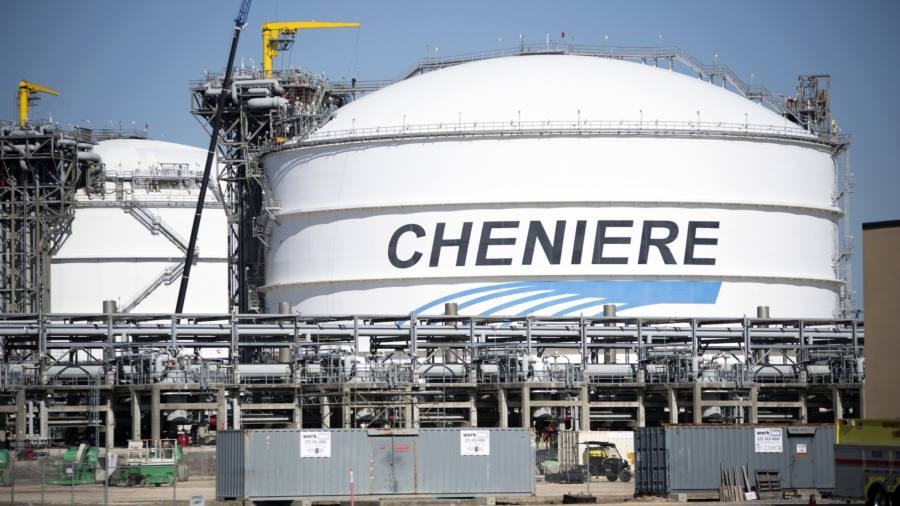Receive free Oil & Gas industry updates
We’ll send you a myFT Daily Digest email rounding up the latest Oil & Gas industry news every morning.
German chemicals group BASF has signed a long-term contract to import US liquefied natural gas, the latest in a string of deals inked by German companies after the country was forced to abandon Russian gas.
Under a deal announced on Tuesday, BASF will purchase an annual 800,000 tonnes of LNG from Cheniere Energy, the US’s biggest producer of the super-chilled fuel, from mid-2026 to 2043.
“By establishing our own dedicated LNG supply chain with Cheniere, we are diversifying our energy and raw materials portfolio at a time of critical changes in the European gas market,” said BASF chief financial officer Dirk Elvermann in a statement.
“While we are reducing our dependence on fossil fuels?.?.?.?this agreement will ensure reliable supply of natural gas at competitive terms,” he added.
The agreement comes as the German company wound down several of its plants in the country earlier this year because of high energy costs, and vowed to invest outside of Europe, prompting worries of EU deindustrialisation.
Nevertheless, the deal seemed to suggest fears that high gas and energy prices would drive investment out of Europe were overblown, said analysts. Henning Gloystein, director of energy, climate and resources at Eurasia Group, said BASF had not relocated its operations from Europe. “There is reshuffling [within Europe], but not deindustrialisation,” he said.
Europe’s largest economy, which spent decades building an industrial sector reliant on cheap Russian pipeline gas, was especially exposed to Moscow’s slashing of supplies after its full-scale invasion of Ukraine, and the explosions last year that demolished parts of the Nord Stream pipeline system from Russia.
A scramble to find a replacement for Russian gas led Germany, which used to purchase more than half of its supplies of the fuel from Moscow, to begin importing LNG late last year. The first of a series of infrastructure for LNG purchases, including rapidly built floating storage and regasification units, began operations in December.
German companies have since rushed to pen deals with US exporters. In June, SEFE, or Securing Energy for Europe — the company born out of Berlin’s effective nationalisation of the German operations of Russia’s state-owned Gazprom — announced a deal to purchase 2.25mn tonnes a year from Venture Global LNG, another US exporter. Venture Global has also locked in a separate deal for 2mn tonnes a year with German utility EnBW.
Berlin, which shut down its last remaining nuclear power plants in April, aims to be carbon neutral by 2045 and sees natural gas as a crucial “bridging fuel” as it works to dramatically expand renewables.
The number of corporations signing up to long-term LNG contracts “tells you that Germany is going to continue using gas and there is demand” for the fuel, said Gloystein.
The US was the third-biggest LNG exporter last year, with the bulk of the cargoes going to Europe. Buyers and sellers have tussled over the length of contracts. US LNG contracts are usually more flexible than in other countries, allowing cargoes to be resold easily if the buyer does not need it.
Cheniere and BASF did not disclose the price at which the gas would be sold, but said it was indexed to the US natural gas benchmark Henry Hub, which tends to be cheaper than European gas prices because of the country’s abundant supply of shale gas.
The US natural gas benchmark currently trades about $2.5 per mn British thermal units, while TTF, the European benchmark, is now at roughly $13/mn Btu.
Cheniere pioneered the country’s gas export business at the peak of the US shale boom. The gas to be supplied to BASF will come from the company’s Sabine Pass facility, which it plans to expand to production capacity of as much as 50mn tonnes a year, up sharply from the current 30mn. The expansion proposal is being reviewed by federal regulators.



